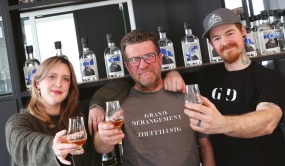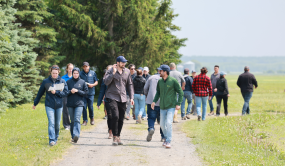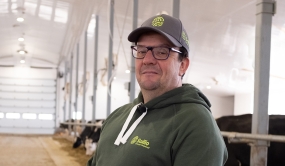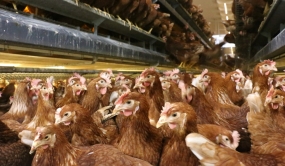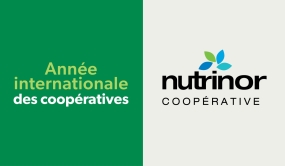When the Dust Settles

Read all of « More than words »
It’s been over three months since member countries of the Trans-Pacific Partnership (TPP) and their trade ministers negotiated the accord in the wee hours of the morning in a downtown hotel in Atlanta. Many of us even remember what we were doing when we heard the news that morning.
In the days preceding the accord, observers outside the agri-food industry were asking why there was so little mention of how important was the TPP for the pig and cattle sectors, for these sectors would have suffered greatly had their competitive terms of access to critical markets been cut off. However, that was never an issue since the TPP without Canada was never a consideration. And yet, supply management was part on the discussion table. While its future was perhaps being decided behind closed doors in Atlanta, it was on trial here at home. Meanwhile, the impact of the impending TPP was more than obvious to the dairy farming community. Coupled with last year’s drop in milk prices, the news around the TPP would lead to a substantial rise - although short lived - of the quota supply.
Then the dust settled. Can we draw the conclusion that there was so much pressure on the dairy market that a mere 3.25% seems like a victory? We should all acknowledge the colossal efforts deployed by Canada’s negotiators to stand their ground faced with heavy-handed intruders: New Zealand and the U.S.A. The fact that New Zealand’s Minister of Commerce expressed his unequivocal frustration after the conclusion of the TPP speaks loud and clear.
Despite the inevitable compressions, a rather large proportion of dairy entrepreneurs still want to expand. They are confident in the future, but remain aware of the relative instability of the border protections in terms of new and innovative products that enter into the manufacturing of dairy products. As with many other things, we get used to the idea: the impact on milk prices, consequently on margins, is structural. “If it were that easy to close the borders to diafiltered milk, why wasn’t it done October 5, by the conservative government as it was experiencing a critical situation” thought many armchair philosophers. A new conclusion needs to be drawn: the 3.25% is certainly a pebble in the proverbial shoe, but their influence is relative compared to the ingredients at stake. The Canadian dairy industry is working hard to adapt to all these technological advances that, by definition, will continue to advance.
Caution is key for those who, based on Ms Clinton’s vague declarations, would be inclined to believe that the TPP may not be ratified. Hillary Clinton will be the democratic presidential candidate. All the more reason if the republicans choose the ineffable Donald Trump to be her presidential opponent, by the end of next year she will be the first woman president of the United States of America. Regardless of her current position on the TPP, she will ultimately work towards its ratification. A renowned Quebec agri-food sector analyst (he knows who he is) recently confided that the race to find the best trade position in South East Asia is pretty similar to the space race in the early 1960s; except for the fact that this race is a face-off between the U.S. and China. The TPP has the U.S. in the lead. Ms Clinton will not plant the seeds of her defeat. The TPP will be ratified within the next two years. By that time, top entrepreneurs from sectors governed by supply management will still have the pedal to the metal. They’ll be well advised to proceed accordingly as long as they are ready and willing to do what they’re already been doing for decades: adapt to an ever-changing environment.

